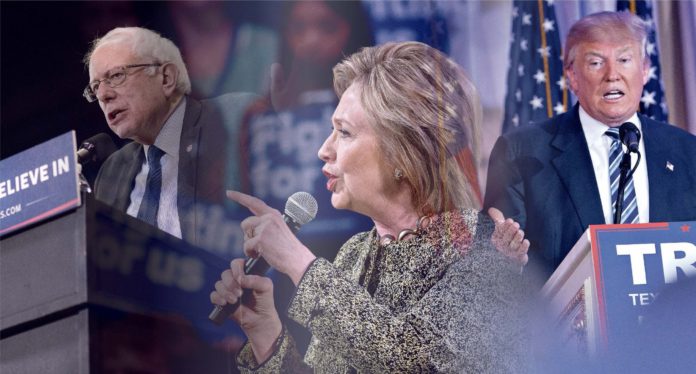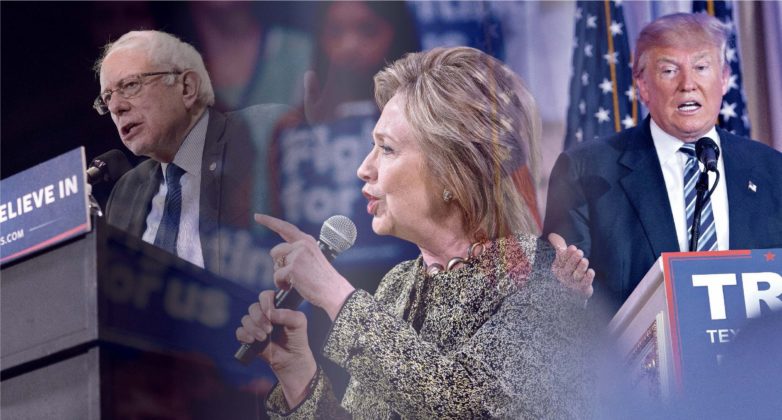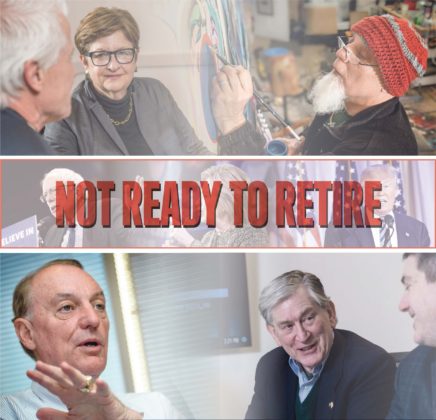
Is there such a thing as being “too old” to lead a college, a business or a country?
For three of the final five candidates for president, all well past age 65, retirement couldn’t be further from their thinking, as they seek one of the world’s biggest professional challenges.
But Democratic candidates Bernie Sanders, 74, and Hillary Clinton, 68, along with Republican Donald Trump, 69, are hardly anomalies.
The trend in the workforce, according to Washington, D.C.-based AARP, is for the fastest-growing segment of workers – those past the traditional retirement age – to keep working. Baby boomers born between 1946 and 1964 are leading the charge.
“Every decade [that passes], more and more people at older ages are in the workforce,” said Michael Herndon, AARP’s vice president of financial resilience.
Once put at age 65, the retirement age defined by the Social Security system is gradually inching upward toward 67, but different thresholds come into play, such as age 59½ – the age at which individuals can begin accessing retirement accounts without penalty, Herndon said.
According to the U.S. Bureau of Labor Statistics’ 2024 labor projections, workforce participation rates for people 75 and older will nearly double from 5.4 percent in 1994 to a projected 10.6 percent. By 2014, they already had climbed to 8 percent. Participation rates for people aged 65 and older increased from 12.4 percent in 1994 to 18.6 percent in 2014, with a projected rate of 21.7 percent through 2024, the federal agency found.
What do older leaders add to the workforce?
“The advantage of having leaders in later career stages is [having] their experience, passion and someone who is continuously self-evaluating,” Herndon said.
“Rhode Island benefits from having leaders 65 and older remaining in the workforce as they in their own way become mentors to the next generation,” said Alan G. Hassenfeld, the former president and CEO of Hasbro Inc. Now 67, he lives in Palm Beach, Fla., in addition to Rhode Island, chairs four nonprofit boards and sits on six others.
“Most of us have survived, but have made many mistakes. If we can teach others about the mistakes and how we survived, all the better,” he said.
Rhode Island’s population of adults age 65 and older will have grown 59 percent by 2040, from 166,203 in 2015 to 264,238 in 2040, said Charles J. Fogarty, director of the R.I. Department of Human Services’ Division of Elderly Affairs, in an email. Baby boomers make up almost 25 percent of the Rhode Island labor force, he added.
“I don’t think that success in leadership or politics discriminates based on age,” Fogarty said, citing former Gov. Bruce Sundlun, first elected to office at age 71.
“According to a Gallup poll I recently read, boomers are twice as likely as millennials to plan a startup,” Fogarty said. “People just aren’t slowing down as they age. As boomers come upon retirement age, they’re turning traditional expectations on their heads.”
Marie J. Langlois, 73, chair of the Rhode Island Foundation’s board of directors, retired at 68 from Washington Trust Investors. She says investor Warren Buffett, who is 85, is “sharper than two 40-year-olds,” and probably the exception.
But while older workers have a responsibility to leave at an appropriate time for themselves personally and their company or organization, leaders do tend to stay longer today – as long as they’re considered healthy and competent.
“People don’t remain in leadership positions beyond normal retirement age unless they and the people they report to feel that they still have the ability to innovate and contribute to the decision-making process, and to lead,” Langlois said.
At 62, Neil D. Steinberg, Rhode Island Foundation’s president and CEO, has no plans to retire soon. He believes the mentoring capacity and networking of older workers – not to mention the sheer experience they offer – make them worth the continued investment by organizations that in the past might have shown them the door sooner.
Following are four Rhode Island leaders who exemplify the forward-looking thinking of a growing crop of senior leaders still blazing trails across the Ocean State and beyond.
“These are people who have made a choice to still go to work every day and get excited about going to work every day,” said Steinberg. “It’s inspirational.” •
Read about four individuals who are active in the Rhode Island business community who are past- or at- retirement age HERE.














